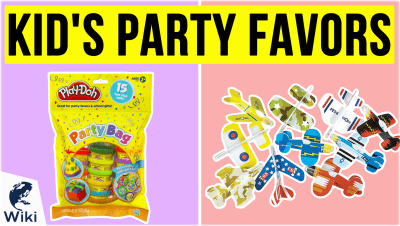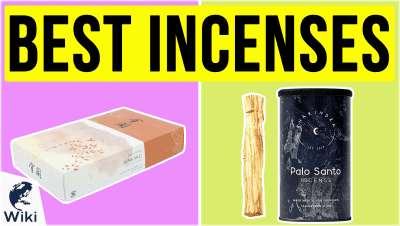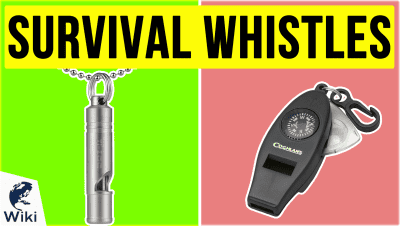6 Successful Conservation Groups Focused On Fish And Their Habitats
Because fish and the waters in which they live are important to the entire ecosystem, it's critical to have scientists and activists working to preserve and improve these areas. Thankfully, there are several American organizations working to give a voice to these creatures and the vital role they play in our lives. These conservation groups all tackle the problems facing fish in different ways, providing critical advances in the fight for our environment. This video was made with Ezvid Wikimaker.
6 Successful Conservation Groups Focused On Fish And Their Habitats
| Organization | Headquarters | Focus |
|---|---|---|
| Wild Salmon Center | Portland, OR | Protecting salmon strongholds in Oregon, Washington, California, Alaska, British Columbia, Russia, and Japan |
| Montana Trout Unlimited | Missoula, MT | Restoring and conserving cold-water fisheries in Montana |
| Salmon-Safe | Portland, OR | Certifies crops and products that are sustainably-produced to encourage innovation in habitat-friendly farming and development |
| California Trout | San Francisco, CA | Working to solve the state's resource issues with an eye toward healthy waters and fish populations |
| Save Our Wild Salmon | Spokane, WA | Nationwide coalition working to protect wild salmon in the Pacific Northwest |
| Long Live The Kings | Seattle, WA | Restoring fish populations and promoting sustainable fishing through science and cutting-edge techniques |
CalTrout and Bay Area Youth Fly Fishers
Is It Ethical To Eat Sushi?
Unfortunately, there isn't an easy answer to that question. Groups like PETA take a hard line on the subject, arguing that there is no way to balance concern for animals and the environment with the eating of fish. However, for many, fish have and will continue to be a vital food source, and as such, looking for sustainable choices is a step in the right direction. As environmentalists and scientists look for ways to solve the problem of dwindling fish populations, consumers can take advantage of online resources such as Seafood Watch that can help you make food choices that are in line with your values.
Salmon Strongholds In California
In Depth
As both a source of food and an indication of the general health of a body of water, fish are vital to our existence on Earth. With growing threats to their populations, ranging from pollution to poor resource management, numerous organizations have cropped up in the past few decades with the goal of protecting these water-dwelling creatures and their environments. If you're interested in the ongoing efforts to safeguard these aquatic animals, then here are, in no particular order, six successful conservation groups dedicated to fish and their habitats.
At #1 is Wild Salmon Center, founded in 1992 by two fly-fishermen. Working in the North Pacific, including Alaska, British Columbia, the Pacific Northwest, and the Russian Far East, the center aims to foster habitat protection and bolster local stewardship in order to protect populations of wild salmon in these areas. The organization takes a proactive stance by focusing its conservation efforts on areas called strongholds, where salmon populations are robust and diverse.
Since its inception, the center and its partners, including Khabarovsk Wildlife Foundation and Oregon Forest Conservation Coalition, have secured seventy-one rivers and 2.7 million acres in protected or managed areas. Those who wish to support the center can write to their members of Congress asking them to defend these strongholds. The group's website also has a section dedicated to its latest campaigns.
Those who wish to support the center can write to their members of Congress asking them to defend these strongholds.
In the #2 spot is Montana Trout Unlimited, which works to conserve and safeguard the state's coldwater fisheries and their watersheds. Some of its main endeavors include advocating for the responsible management of fisheries, educating Montana's residents, and protecting the water quality of the state's streams and rivers, like the Smith River, a nationally known recreational fishery that MTU fights to keep safe from the effects of potentially harmful mining efforts nearby.
In order to support local communities, MTU offers mini-grants to its chapters and affiliates to cover the costs of expenses like educational programs and the monitoring of stream temperatures and flows. If you're looking to support Montana Trout Unlimited, there is a section on the website where monthly or one-time donations can be made. The group also publishes a quarterly newsletter called "Trout Line" with updates on MTU's goings-on.
Coming in at #3 is Salmon-Safe, an eco-label founded in 1996 that certifies places and products through a peer-reviewed accreditation program, ranging from vineyards and golf courses to wine and food. The organization has certified more than 95,000 acres of farm and urban lands in Oregon, Washington, California, and British Columbia. Its goal is to promote farming practices that improve water quality, watershed health, and habitat restoration in order to ensure the overall wellbeing of salmon in the Pacific.
Its goal is to promote farming practices that improve water quality, watershed health, and habitat restoration in order to ensure the overall wellbeing of salmon in the Pacific.
To spread its mission, Salmon-Safe has partnered with numerous companies and other organizations, including Nike and the Northwest Flower Growers, in a series of campaigns and public-service advertisements. The eco-label also maintains an active blog with frequent updates covering, for instance, information on Community-Supported Agriculture exchanges that have been certified. Those who are interested in supporting Salmon-Safe can make tax-deductible donations through its website.
At #4 is California Trout, founded in 1971 as the nation's first statewide conservation group supported by trout and steelhead fishermen. Two early victories for CalTrout were the California Wild Trout Program and the California Wild and Scenic Rivers Act, the latter of which protects over 1,800 miles of free-flowing rivers. Today, CalTrout works to confront the state's resource issues while paying special attention to the needs of people and wild fish. At the heart of the organization's mission is the idea that abundant wild fish indicate healthy waters, and healthy waters signal a better future for Californians.
The organization has five regional offices and over thirty conservation projects across the state. CalTrout uses science-based solutions to strike a balance between the interests of fish, farms, business, and people. It also strives to influence policy on a legislative level, with a political consulting firm kept on retainer to engage with key decision-makers in Sacramento. There are a variety of ways to support CalTrout, including online donations, purchases through its virtual store, and occasional opportunities to sign petitions detailed in the news section of its website.
CalTrout uses science-based solutions to strike a balance between the interests of fish, farms, business, and people.
At #5 is Save Our Wild Salmon. Based in Washington and founded in 1991, SOS is a nationwide coalition of wide-ranging organizations, from conservation groups to sustainable-minded businesses, that seeks to protect and restore the fishable populations of salmon and steelhead in the Columbia-Snake River Basin. Once hosting an abundance of over sixteen million of these fish returning annually, the basin is now depleted, with many species either endangered or risking extinction.
SOS has two main aims: one, to obtain a science-based federal plan that will lead to the removal of four dams on the Snake River; and two, to secure an updated treaty between the United States and Canada that takes into account the ecological functioning of the river. Those who want to support the coalition can sign up for an online newsletter or periodic action alerts. SOS also has links with information where concerned citizens can contact their local, state, and federal lawmakers.
At #6 is Long Live the Kings, founded in 1986 by a group of fish enthusiasts who wanted to rebuild wild salmon populations using hatcheries. With connections to over 125 sites in the Pacific Northwest in places like Hood Canal and Puget Sound, LLTK works in conjunction with numerous stakeholders, from freighters to other water species, that salmon interact with on their journeys from fresh water to ocean and back.
With connections to over 125 sites in the Pacific Northwest in places like Hood Canal and Puget Sound, LLTK works in conjunction with numerous stakeholders, from freighters to other water species, that salmon interact with on their journeys from fresh water to ocean and back.
The group's three-pronged approach focuses on advancing scientific understanding of the fish, implementing solutions to recover salmon and steelhead populations, and improving management and recovery holistically. Since its inception, LLTK has helped raise millions of dollars to improve salmon migration. Those who want to support Long Live the Kings can sign up to volunteer in the field, contribute to one of its featured campaigns, or attend one of its seasonal events, which often include dinner and a silent auction.


















